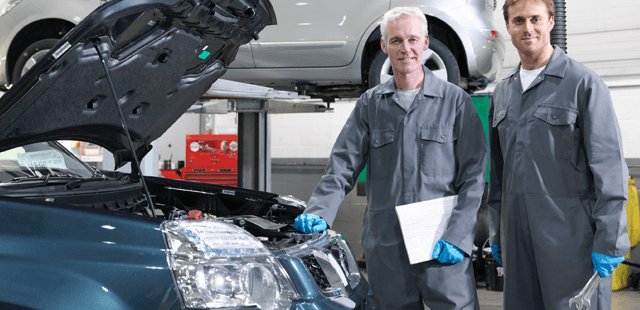All Categories
Featured

When it comes to automobile upkeep, the brakes are arguably the most important system for ensuring your safety. Normal brake examinations are important to keeping your stopping system in leading problem.
- Why Brake Examinations Are Important. Brakes are developed to put on down with time, but without regular evaluations, you may not observe when they become much less effective. A defective brake system can lead to major mishaps, raised repair service expenses, and also the need to replace various other car elements.
Brake assessments not only aid you catch prospective problems prior to they rise, but they likewise permit much better braking performance, increased automobile life expectancy, and boosted safety.
- Recognizing Caution Signs for Brake Problems. While routine examinations are essential, you don't need to wait till your car's following check out to the mechanic. Look for these caution indications that may suggest it's time for an assessment:
Unusual Sounds: A high-pitched screech or grinding noise when applying the brakes commonly signals that the brake pads are put on down or harmed. Soft or Mushy Brake Pedal: If the brake pedal feels soft or mushy when pushed, there may be air or moisture in the brake lines, or the brake liquid may be reduced. Pulling away: If the automobile draws to one side while braking, it could show irregular brake pad wear or a hydraulic problem in the brake system. Vibration in the Guiding Wheel or Pedal: If you experience vibration or pulsation when braking, it may signify deformed rotors or uneven brake pad wear. Raised Stopping Range: If it takes longer than typical to bring your car to a quit, it might be time to inspect the brake pads, fluid levels, or blades. If you discover any of these indicators, it's ideal to have your brakes examined instantly by a specialist.
- Trick Elements Checked During a Brake Assessment. Throughout a brake inspection, a licensed auto mechanic will check out a number of vital components of the brake system to guarantee they're functioning appropriately. Some of the most crucial components to evaluate consist of:
Brake Pads: These are the friction product that presses against the brake rotor to reduce the car. In time, the brake pads put on down and require changing. Brake Rotors: Blades are the steel discs that the brake pads secure down on. They should be smooth and devoid of deep grooves or fractures. Brake Liquid: The brake fluid transfers the force from the pedal to the brakes. Low fluid levels or old, contaminated fluid can lead to poor braking performance. Brake Lines: Brake lines carry fluid from the master cylinder to the brake elements. They need to be looked for leaks, fractures, or damages. Brake Calipers: These clamp the brake pads onto the rotors. They need to remain in good working order and devoid of leakages. Consistently examining these parts ensures your stopping system functions smoothly and assists you avoid dangerous driving situations.
- How Usually Should You Obtain Your Brakes Examined? The regularity of brake examinations depends upon your driving behaviors and the type of automobile you own. As a general guideline, it's suggested to evaluate your brakes a minimum of annually or every 12,000 miles. If you drive in hefty web traffic, frequently carry hefty lots, or drive on sloping terrain, even more regular evaluations might be required.
It's also a great idea to have your brakes evaluated if you see any of the warning indicators mentioned previously, as this can avoid extra major issues.
- The Price of Ignoring Brake Inspections. Ignoring regular brake inspections can result in severe repercussions. Used brake pads, harmed blades, or low brake liquid can trigger your braking system to fall short when you need it most. In addition to the security dangers, overlooking brake upkeep can lead to costly fixings later on.
For example, if the brake pads are not changed in time, the damages can include the rotors, resulting in the requirement for rotor replacement-- an expensive repair. By scheduling routine brake evaluations, you can stay clear of these costly repairs and maintain your stopping system in great condition for longer.

- What Happens During a Brake Evaluation? A specialist mechanic will certainly perform a comprehensive evaluation of your car's braking system, including looking for the complying with:
Brake Pad Thickness: Brake pads require to be changed when they have worn down to a certain density. Blades Problem: The mechanic will examine the blades for indicators of wear, bending, or scoring. Brake Liquid Degree: Reduced brake liquid can impact braking performance. The technician will check the liquid level and renew it if essential. Brake Line Integrity: The brake lines will certainly be checked for any type of leaks or fractures that can jeopardize the brake system. Once the examination is total, the mechanic will educate you of any needed repairs or substitutes.
Conclusion: Stay Safe with Normal Brake Inspections. Your brakes are necessary to keeping you and your guests secure on the roadway, so routine brake inspections need to never ever be ignored. By taking note of indication, scheduling routine brake checks, and attending to concerns immediately, you can make sure that your brakes are constantly in leading shape.
Do not wait until your brakes fall short-- stay aggressive concerning brake maintenance. A small financial investment in brake assessments today can save you from expensive repair services and unsafe situations in the future.
Latest Posts
Untitled
Siding Solutions for a Stunning, Energy-Smart Home
Comprehending the Residential Roof Covering Tear-Off Refine
